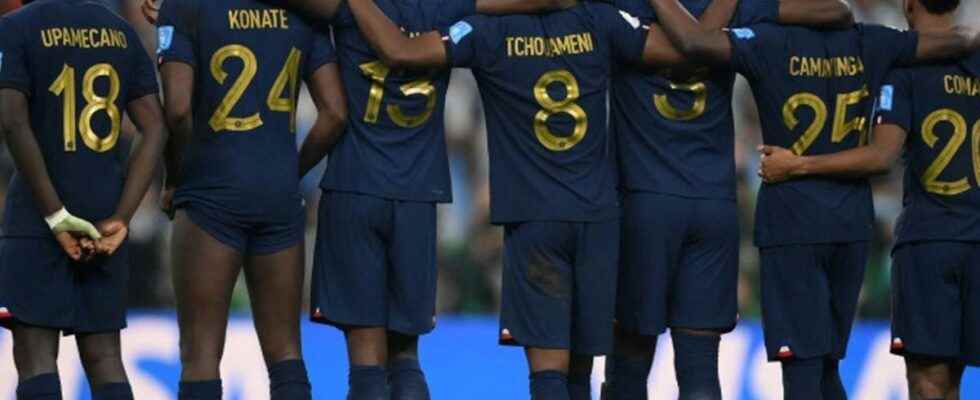Published on
Updated
Reading 4 mins.
After the cruel outcome for the French football team in the World Cup final, it’s time to accept the result. But how do you overcome frustration? Answers with Martin Duclos, mental trainer and sports advisor.
In the aftermath of a defeat, what are the predominant feelings among the players?
The Football World Cup is special for athletes. If a career lasts about 10-15 years, that leaves only 3-4 chances to enter this competition. Reaching the final is very rare. I remain convinced that each player experiences the World Cup differently depending on his background, his career and what is said about him. To take an example in the France team, I do not think that Olivier Giroud lives this adventure in the same way as Ibrahima Konaté. In case of defeat, there is sadness and disappointment. Athletes may also feel annihilated, as the course stops one step away from the World Cup.
The management of emotions, felt thanks to their team, characterizes the life of supporters. In case of victory, it brings joy and extraordinary emotions. But we live in a world of duality where there has to be a winner and a loser. France remains on good course, a victory in the World Cup or in the League of Nations. You have to take a step back, the fans were perhaps used to winning.
But a defeat is not just about the score. Faced with the course of the match, we can be proud of the way the France team fought. Losing 2 or 3 goals to 0 would have been difficult to digest. The spirit of revolt on the pitch brought strong emotions to the supporters. With a little hindsight, we can say that it was a particular shot of adrenaline. Living this kind of emotions is already a great victory.
What are the psychological stages that follow a failure?
The first step is to accept what happened and the emotions that follow. Then, there is the time of ‘digestion’, where the match is rehashed, with the desire to redo things. At this time, it can be difficult to find the words, to want to express yourself, especially at the end of the meeting. Then comes the most important moment for me, getting back into action.
If there’s a defeat, it’s because some things didn’t work out. I really like the phrase ‘either you win or you learn’. The questioning analyzes what was put in place during the competition and identifies what was missing for the result to be favorable. Then there is the ability to start again after a failure. A top athlete is able to set new goals, thanks to the support of his entourage, specialists, but also club life.
What place for individual questioning in a collective sport?
When there is an emotional wound, it is important to take the time to talk about it to help him see things from another angle. In a failure, there are always good things. The idea is to go digging to find them and overcome this difficulty. This experience is a step in the evolution process, which helps to perform afterwards. In the case of the France team, the defeat in the Euro 2016 final helped the victory in the 2018 World Cup.
An athlete can remain frustrated for 24 hours after a championship match. It can be characterized by a lack of communication, a drop in motivation, weariness… At this time, the balance between professional life and personal life is important. Family life and his social circle are all resources from which he draws strength to rebalance himself and move forward.
Everyone manages in their own way. The most important thing is to have a reflection during this time, without being overwhelmed. For example, Randal Kolo Muani, the striker of the France team, can either dwell on the missed action at the end of the match or on the contrary notice all the good he brought to the team as soon as he entered the game. In any case, we have no control over the past.
It is important to dissociate the fields over which we have control and those where we do not. The only control lies in the reaction to chambering. To answer is to give importance. In the case of Kylian Mbappé, Argentine fans caring about an opposing player who didn’t win means they thought about him a lot. In a way, it’s flattering for the French striker. Chambering is part of the job. Also, I believe in karma afterward.
There is no a miraculous recipe. When you win it’s amazing, but when you lose it’s the emotional lift. Getting into action, getting out of lethargy, going for a run or doing an activity with loved ones helps to move on. Hard times are part of the game.
*Interview with Martin Duclos, mental trainer and sports advisor rmade by our colleagues from ETX Studio
